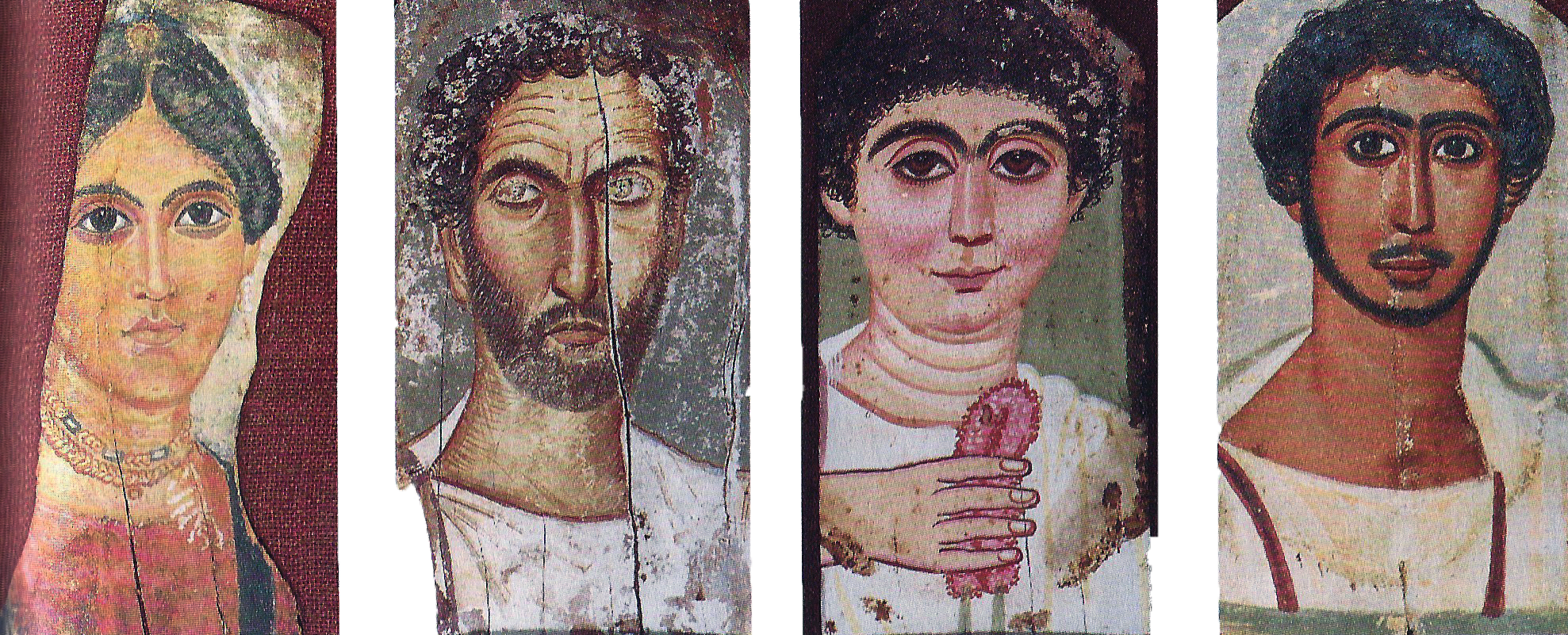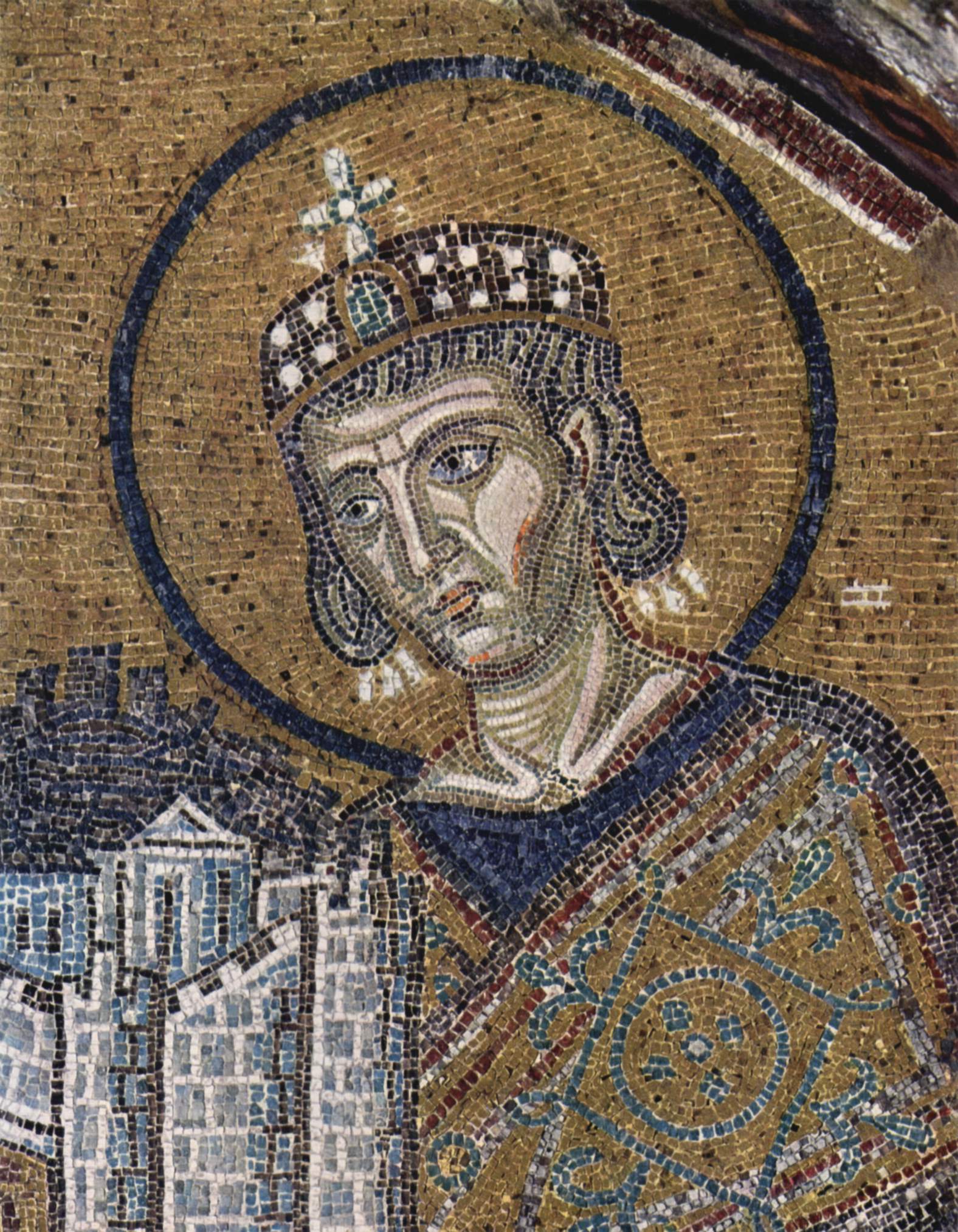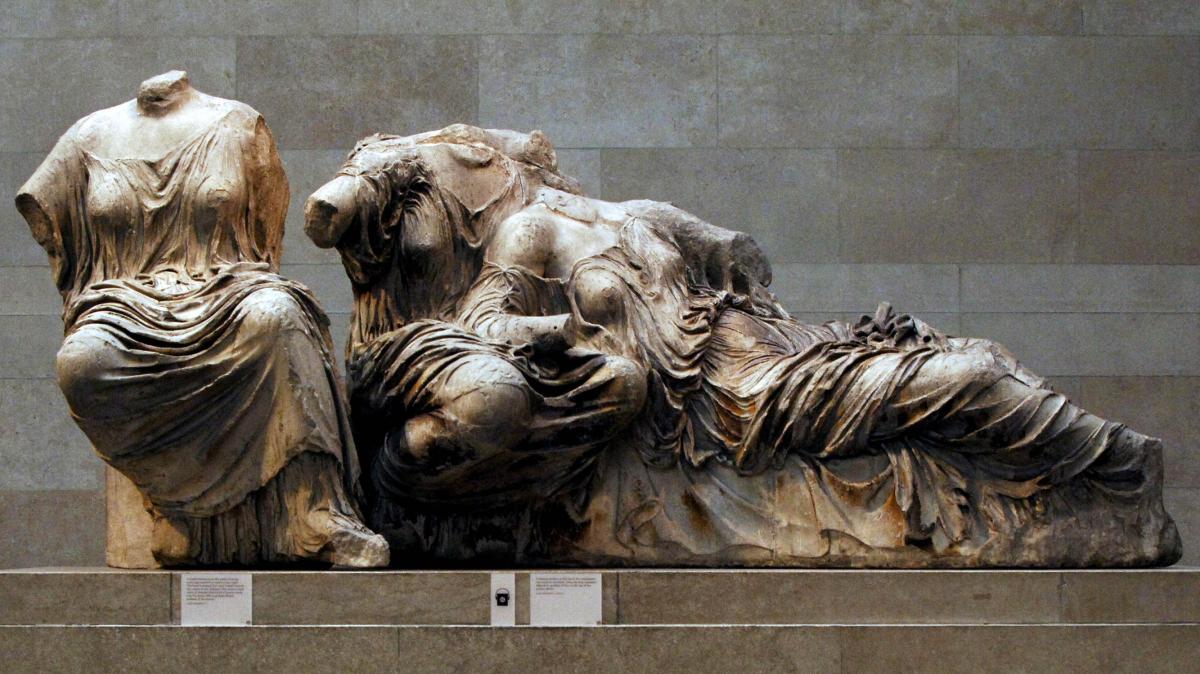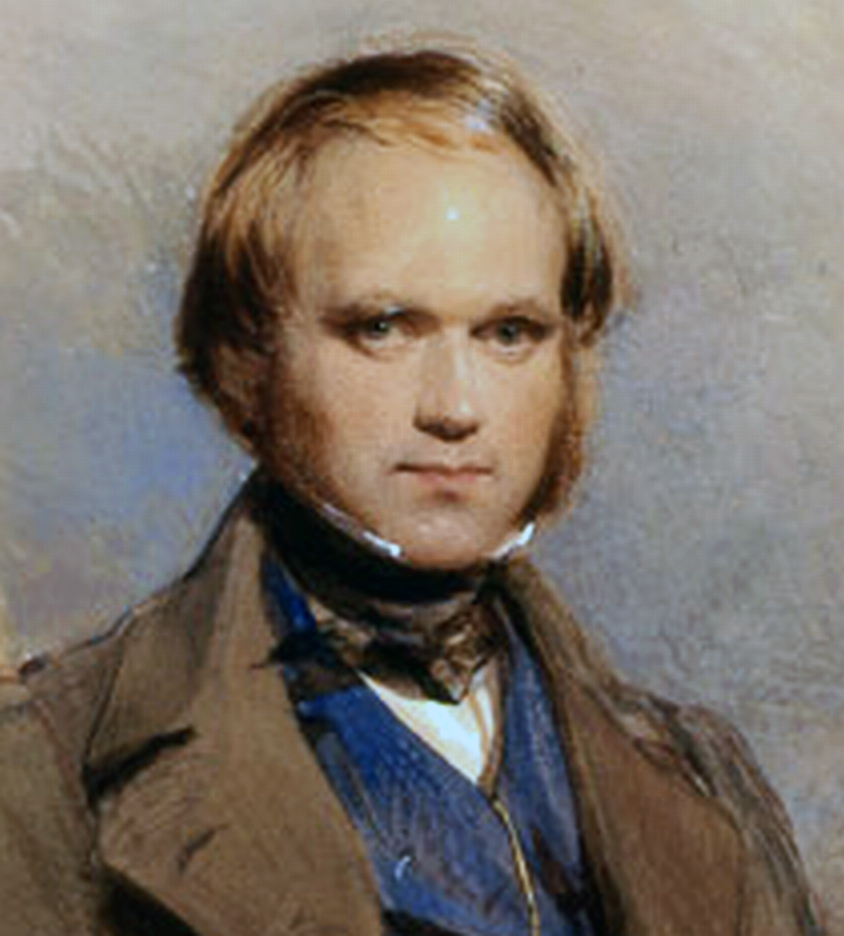Recently, in one of his typical videos, Millennial Woes reacted to the subject of admitting women in the movement. He has a point: the presence of female vloggers sweetens the redpill, there’s no question about that. But he goes farther and chastises those who want a boys-only club. Right after the hour Woes said: ‘We have to mature and develop beyond the male insecurity and paranoia that clearly is in abundance in our movement, in our community…’
Like many in the Alt-Right movement Woes is an ahistorical simpleton. He completely ignores that, say, women occupied prominent positions at the beginning of the Church. Hitler called Christianity the Bolshevism of the Ancient World, and we can imagine the female SJWs of the Early Church fighting for the inclusion of those nonwhites marginalised in the provinces of the Roman Empire.
I have not ended my translations of the series Apocalypse for whites, let alone the huge Kriminalgeschichte. For the moment a picture is worth a thousand words:
 These are the type of mudbloods and sandniggers that composed the first Christians. The image is taken from funerary portraits of faithful resemblance to Greek-speaking people residing in Egypt. (The portraits survived thanks to the dryness of the Egyptian climate.) Although it is impossible to say who these men or women were, all were early Christians according to the book where I scanned the image.
These are the type of mudbloods and sandniggers that composed the first Christians. The image is taken from funerary portraits of faithful resemblance to Greek-speaking people residing in Egypt. (The portraits survived thanks to the dryness of the Egyptian climate.) Although it is impossible to say who these men or women were, all were early Christians according to the book where I scanned the image.
Female vloggers sweeten the redpill, yes. But ultimately, and pace feminised western males like Woes, what we will need are natural-born killers. Women have their place in the movement lecturing other women. But only men ought to lecture men. If Alt-Right women are lecturing men that only means that the latter are avoiding a real fight in the real world. Moreover, women usually lack the IQ to see why the info provided by the authors of Apocalypse for whites and Kriminalgeschichte (think of the above pic) is so relevant for the survival of the race.
Yes: the women that Woes defends score much higher in YouTube hits than Woes himself. And Woes scores much higher than this humble WordPress blog of yours truly. But sooner of later men will have to make a choice: remain feminised like Woes or, awakened with the unsweetened redpill, fight to the death.
Tag: Christian question (CQ)
What moves me continue to translate
Deschner’s book is perfectly depicted in
this hilarious caricature.
Akins quote
“The problem with Christianity (and the reason why the Jews are able to use Christians to their advantage to further their agenda of promoting the extinction of the White race) is that Christianity is founded upon the principle of altruism.”
by Evropa Soberana
Below, abridged translation from the first chapter of Roma contra Judea, Judea contra Roma, authored by the Spanish blogger Evropa Soberana:
______ 卐 ______
‘The Jews have long been in rebellion not only against Rome, but against all humanity’.
—Euphrates the Stoic
‘The Jews belong to a dark and repulsive force. I know how numerous this clique is, how they remain united and what power they exert through their unions. They are a nation of liars and deceivers’.
— Cicero
I
Foreword
The purpose of this book is to give an idea of what happened to the Ancient World, of how Europe fell into the Middle Ages and, especially, to what extent what happened in Rome 1,600 years ago is exactly what is happening in our days throughout the West, but magnified a thousand times by globalization, technology and, above all, the deputation of psycho-sociological and propagandistic knowledge by the System.
What is dealt with in this book is the story of a tragedy, of an apocalypse. It is the end not only of the Roman Empire and all its achievements, but also of the survival of the Egyptian, Persian and Greek teachings in Europe in a bloodthirsty process: premonition of the future destruction of Celtic, Germanic, Baltic and Slavic heritages, always accompanied by their respective genocides.
This process had a markedly ethnic character: it was the rebellion of Christianized slaves (from Asia Minor and North Africa) against Indo-European paganism, which represented the ancestral customs and traditions of the Roman and Hellenic aristocracies—decadent, minoritarian and softened in comparison with an overwhelmingly numerous, brutalized people who cordially detested the distant pride of their lords.
In the third chapter, ‘Christianity and the fall of the Roman Empire’, we will see processes that marked the first development of Christianity: that strange synthesis between Jewish and Greco-decadent mentality that, from the East, devoured the classical world to the bone, undermining Roman institutions and the Roman mentality to the point of propitiating its total collapse.
However, we will begin by focusing on the Eastern Roman provinces, especially Judea, which was snatched by Rome to the heirs of Alexander the Great. How were the relations between Greeks and Jews? What role did the Romans play in Asia Minor and in the management of the Jewish problem? What are the true roots of Israel and the current instability in the Near East?
It will be worthwhile to expand on the subject to familiarise oneself with the foundations of what is today the greatest geopolitical conflict on the planet: the State of Israel. We will also see the impossibility, in the long term, of the coexistence between two radically different cultures—in this case, the Greco-Roman and the Jewish.
For now, the Romans will meet a people who take the tradition with the same seriousness as them, but replacing that Olympic, artistic, athletic and aristocratic touch with a spark of fanaticism and dogmatism, and changing the Roman patriotism for a kind of pact sealed behind the backs of the rest of humanity. A people, above all, with a fiercely rooted sense of identity—in fact, much more than any other people—and who also considered themselves to be no less than the ‘chosen people’…
Index
First part
Geopolitical, anthropological and ethnic context
Rome
Judea
Roman anti-Semitism: a spiritual conflict
The Hellenistic legacy
Greek anti-Semitism
The conquest of Pompey
Herod the Great
About Jesus Christ and the birth of Christianity
Caligula
Claudius and Nero
Second part
First Jewish-Roman War: the Great Jewish Revolt of 66-73 CE
Ethnic disturbances in Egypt
Siege and fall of Jerusalem: the destruction of the Second Temple
Fall of Masada
Consequences of the Great Jewish Revolt
Second Jewish-Roman War: the revolt of Kitos of 115-117 CE
Third Jewish-Roman War: the revolt of Bar Kokhba of 132-135 CE
Consequences of the Palestine revolt
Some conclusions
Nietzsche on the conflict Rome vs. Judea
Third part
Let’s have a look at the situation
‘The Jewish sect’ appears
The Nero case as an example of historical distortion
Destruction of Jerusalem: Christianity takes hold outside Judea
Christians stops being persecuted
At the top of the pyramid there are only slaves: Anti-pagan genocide
The Emperor Julian as the last Roman breath
The Anti-pagan genocide continues with more virulence
The martyrdom of Hypatia as an example of Christian terrorism
In conclusion
Nietzsche on Christianity
Nietzschean version of the Sermon on the Mount
On Jared Taylor
 Before I start the arid task of arranging today’s post on the Kriminalgeschichte series, I’d like to say something about this interview.
Before I start the arid task of arranging today’s post on the Kriminalgeschichte series, I’d like to say something about this interview.
Taylor perfectly exemplifies what we call secular Christianity. Although he now holds a secular worldview, as a child his parents moved to Japan to convert the heathen. As I have experienced religious introjects coming from my parents (and written a lot about it in Spanish), I know there’s always a residual tail that cannot be erased.
Regarding Kevin MacDonald’s admitting a Jew as a contributor, in the latest podcast I told Walsh that more than an Aryan problem I see it as a Christian problem, in the sense of what we are calling ‘secular Christianity’. Like MacDonald, Taylor also seems to subscribe universal love, which includes Jews and non-whites: something absent in pre-Christian Europe.
What bothered me about the interview is that Taylor said that those at his right blame all Jews, completely ignoring William Pierce’s point that even if only ten percent of the kike forest is poisonous for us, the problem is the whole forest. Hasn’t Taylor read Pierce’s article? (Visualise it with the other Semitic tribe that’s infecting the West, Muslims, and you’ll get Pierce’s point.)
Taylor went further to say that he does not like much the term ‘white nationalism’ because it evokes the violence needed to create an ethnostate, and that he’s against any kind of violence coming from us! He added he’s prepared to admit some non-whites in the Aryan ethnostate precisely because he doesn’t want ethnic cleansing!
I didn’t listen the whole interview. But I am sure very few visitors of my site will comprehend the need of continuing the instalments of Deschner’s book for an in-depth analysis of what went wrong with the white psyche. Just think about it: big leaders of our movement hold views that would have been unthinkable for pre-Christian Europeans.
Editor’s note: The author states below: ‘This provision [by Constantine] had serious consequences, as it was one of the first to deprive Jews, in practice, of owning farms’. This is how the first seeds were planted for the Jews to do what today is called ‘white collar’ jobs.
In the days of Ancient Rome the Jews still did not have an IQ superior to Whites. This policy of cornering Jews to work outside of what is now called ‘blue collar’ jobs continued until the French Revolution. Although the anti-Semitic seed of Constantine described below could be applauded by white nationalists, seeing it in perspective was a shot that backfired.
Parallel to allowing Jews in banking and usury, throughout the Middle Ages the best genes of White intellectuals ended, excuse me the crude expression, in the asses of the novices of the monasteries instead of in the fair sex. Unlike the Christians, medieval Jews never practised vows of celibacy. The artificial selection of genes that raised the IQ of the Jews at the expense of the lack of descendants of intelligent Whites (Aryan monks) was a courtesy of Christendom.
In previous chapters the author constantly used quotation marks around the word ‘pagans’. In this chapter he removed the quotation marks. Since ‘pagan’ was Christian newspeak of the 4th century, in some instances of this entry I’ll take the liberty to substitute the textual ‘pagan’ for something like ‘adepts of Greco-Roman culture’.
Below, abridged translation from the first volume of Karlheinz Deschner’s Kriminalgeschichte des Christentums (Criminal History of Christianity):
______ 卐 ______
 Constantine against Jews, ‘heretics’ and pagans
Constantine against Jews, ‘heretics’ and pagans
The emperor was not very friendly with the Jews, surely he was greatly influenced by the permanent anti-Semitic attacks of the doctors of the Church, which we have seen in chapter 2, and the recent Synod of Elvira, which had sanctioned with very strong penances the relations between Christians and Jews, in particular the attendance to blessings of fields and banquets celebrated by Jews.
The Roman emperors were quite tolerant of Judaism; not even Diocletian tried to force them to comply with the pagan rites. But after the Council of Nicaea Constantine comes to the conclusion, reflected in an epistle to all the communities, that the Jews ‘tainted by delirium’, ‘wounded by the blindness of the spirit’, ‘deprived of the right judgment’, are ‘an odious nation’ and except for one day a year forbids them to set foot on the city of Jerusalem that he and his mother had filled with churches.
In addition, he forbade them to have slaves like Christians. This provision had serious consequences, as it was one of the first to deprive Jews, in practice, of owning farms. The Christian who Judaized was sentenced to death. In addition, Constantine renewed a law of Trajan, promulgated two hundred years before, according to which the pagan who was converted to Judaism was condemned to the stake.
Even harder was the policy against the ‘heretics’, and this already from the time of the regency, from the year 311, on the grounds that many of those who had abjured Christianity wanted to receive baptism again. This resulted in a schism with bloody repercussions that lasted for several centuries. It is at that time when the definition of ‘catholic’ as opposed to the figure of the ‘heretic’ appears for the first time in an imperial document.
The Donatists rejected the association with the State, the Constantinian alliance between the throne and the altar. They judged that they were the true Ecclesia sanctorum and that the Roman Church was the civitas diaboli. They appealed to the Christian’s beliefs by demanding greater austerity for the clergy. Constantine’s campaign against Licinius turned against the Donatists at the instigation of Bishop Caecilianus in a campaign that lasted several years, presided over by the decision to ‘not tolerate even the slightest hint of division or disunity, wherever it may be’. Moreover, in a letter from early 316 to Celsus, vicar of Africa, Constantine threatened: ‘I intend to destroy the errors and repress all the nonsense, in order and effect to offer to all the human race the only true religion, the only justice and unanimity in the worship of the almighty Lord’.
To the Donatists he took away their churches and their fortunes, exiled their chiefs and commanded troops who slaughtered men and women. The hecatomb of the adepts of Hellenism had not yet begun and Christians were already making martyrs of other Christians.
Constantine also fought against the Church of Marcion, an older church and at some point probably also more followed than the Catholic Church. Constantine prohibited the offices of the Church of Marcion even when they were held in private homes; had their images and properties confiscated, and ordered the destruction of their temples. His successors, most likely instigated by the bishops, stepped up the persecution of this Christian sect after having defamed it and by all means, including through falsifications during the 2nd and 3rd centuries. In 326, shortly after the Council of Nicaea, Constantine issued a scathing edict ‘against heretics of every kind’, in case it was authentic of course and not a figment of Eusebius.
Constantine’s actions against the ‘heretics’ set an example, but at least he respected life most of the time. After all, he did not care about religion as much as the unity of the Church on the basis of the Nicaea Council, and hence the unity of the empire. Undoubtedly, he had an exclusively political concept of religion, although religious problems always, and from the first moment, were presented in relation to social and political conflicts. In the interest of state power he promoted the unity of the Church. This, and not another, was the cause of his hatred of all kinds of discord. ‘I was sure that, if I could complete my purpose of uniting all the servants of God, I would reap abundant fruits in the public interest’, he wrote in a letter to Arius and Bishop Alexander.
In the year 330, Constantine sends a sentence against the Neo-Platonic school and even orders the execution of Sopater, who had been presiding over this school since the death of Iamblichus. The adepts of Hellenism become ‘fools’, ‘people without morals’ and their religion a ‘hotbed of discord’. Constantine’s true intention was that all humans ‘revered the one true God’ and that they forsake ‘the temples of the lie’.
While the adepts of Hellenism of the western provinces still enjoyed relative tranquillity, in the East the persecutions began after the definitive defeat of Licinius (324). Constantine forbade the erection of new statues to the gods, the worship of existing ones, and the consultation of oracles and all other forms of Greco-Roman worship.

In 326 Constantine came to order the destruction of all the images, while in the East he began the confiscation of temple properties and the plundering of valuable works of art. In his new capital, blessed on May 11, 330 after six years of work funded in part through the treasures confiscated from the temples, Constantine banned the worship and the festivals of the adepts of Hellenism and rents were no longer paid to the temples of Helios, Artemis Selene and Aphrodite.
Constantine, described as a ‘renegade’ and ‘innovator and destroyer of ancient and venerable constitutions’ by Emperor Julian, but praised by many modern historians, soon prohibited the repair of Greco-Roman temples and ordered numerous closures and destructions ‘directed precisely against those who had been most revered by the idolaters’ (Eusebius). He arranged the closing of the Serapis of Alexandria, the temple to the Sun-God in Heliopolis, the demolition of the altar of Mamre (because the Lord himself had appeared there to Father Abraham, in the company of two angels), and that of the temple of Aesculapius in Aegae, the latter being fulfilled with such diligence ‘that not even the foundations of the ancient ravings remained’ (Eusebius).
Constantine also ordered the destruction of the temple of Aphrodite on Golgotha, for the ‘great scandal’ that it represented for the believers; it was also the turn of Aphaea in Lebanon from whose sanctuary came ‘a dangerous web to hunt souls’ and which, according to the emperor, ‘does not deserve the sun to shine’. There was no stone left upon a stone; and the very famous Heliopolis was burned down and reduced to rubble by a military command.
Constantine burned Porphyry’s controversial writings. From the year 330, when Neo-Platonism was forbidden, Christians abounded in looting of temples and breaking images, as all Christian chroniclers celebrated and despite such activities having been implicitly prohibited by the Council of Elvira.
Contrary to what Christian historians would like us to believe, the emperor, naturally, was not interested in fighting face to face with the Greco-Roman culture that still held the majority in much of the empire and retained part of its strength, which of course does not mean that there were not well received ‘the small material expropriations’ (Voelkl): the stones, the doors, the bronze figures, the vessels of gold and silver, the reliefs, ‘the valuable and artistic ivory votive offerings confiscated in all the provinces’, as Eusebius highlights.
‘Everywhere they went stealing, looting and confiscating the images of gold and silver and the bronze statues’ (Tinnefeid). Constantine did not even respect the famous tripods of the fortune-teller of the sanctuary of Apollo at Delphi. The historian Kornemann notes ‘a theft of works of art as has never been seen in all of Greece’.
Even St. Jerome criticized that the city of Constantinople had been built with the booty of almost all other cities. ‘In the blink of an eye, whole temples would disappear’, rejoices Eusebius. The entire Olympus was gathered in the ‘new Rome’, where the emperor, even without daring to tear down the temples, had all the statues removed from them. The most venerated gods were installed in bath-houses, basilicas and public squares. The deified Apollo, which had been the most venerable monument in the Hellenic world, was converted into a Constantine the Great. ‘Immense riches disappeared from the coins or went to fill the empty coffers of the Church’, Voelkl reminds us.
Eusebius tells us that… the temples and sanctuaries, once so proud, were destroyed without anyone ordering it, and churches were built in their place and the old delirium was forgotten.
However, at the Easter of 337 the sovereign fell ill. First he sought remedy in the hot baths of Constantinople, and then in the relics of Lucian, protective patron of Arianism and disciple of Arius himself. Finally he received on his farm, Achyronas of Nicomedia, the waters of baptism despite his desire to take them on the banks of the Jordan in imitation of Our Lord. At that time (and until about 400) it was customary to postpone baptism until the last minute, especially among princes responsible for a thousand battles and death sentences. As Voltaire suggests, ‘they believed they had found the formula to live as criminals and die as saints’. After the baptism, which was administered by another colleague of Lucian named Eusebius, Constantine died on May 22 of the year 337.
While the Christians have almost dispensed with their common sense for praising Constantine, obviously there are very few testimonies of his critics that have reached us, among them those of the Emperor Julian and the historian Zosimus.
The Western psyche has been neutralised after hundreds of years of universalist indoctrination by the Christian churches (‘We’re all one in Christ’)… The core belief of colour blind Christianity is to bring salvation to all tribes. Nation is irrelevant, salvation in Jesus is everything. Marxism preaches the same messianic nation-wrecking ideology.
Killing innocents and sinners
Writing about the Sutherland Springs church shooting, on The Daily Stormer Andrew Anglin said today: ‘I hate aggressive edgy atheists as much as anyone…’
Apparently Anglin hates those whites who reject the existence of the Jewish god—a volcanic demon that Jews claim appeared to Moses, the very same god that Aryans were compelled to worship after Constantine took over the Roman Empire.
Anglin’s words exemplify beautifully the gulf between me and most American racists. But it’s not only a matter of worshiping the god of our enemy: it’s also about the universalist ethics imposed on whites after Constantine. (Every sandnigger or black could be a citizen of Constantinople as long as he was Christian.)
Another recent example: In his blog for southern nationalists, Hunter Wallace started his article with the words: ‘Devin Patrick Kelley, the EVIL bastard who murdered 26 people at First Baptist Church in Sutherland Springs, TX this morning…’
One of Kelley’s victims, the 14-year-old daughter of church pastor Frank Pomeroy, was black. A pre-Christian Aryan would never mourn the killing of a black adoptee, and the rest of the adult victims in Texas were complicit of tolerating such sin against the holy ghost: adopting a subhuman as if she was human.
I would only mourn the white children killed: the only really innocent victims inside the church.
 The others were sinners. But Anglin, Wallace and many American racists still have the Bible as their sacred book instead of Hitler’s Table Talk, right? ‘Almost two thousand years—and not a single new god!’ said Nietzsche.
The others were sinners. But Anglin, Wallace and many American racists still have the Bible as their sacred book instead of Hitler’s Table Talk, right? ‘Almost two thousand years—and not a single new god!’ said Nietzsche.
This is the sort of thing that moves me mightily to continue the translation of Deschner’s book, who in this pic is shown long before he started to write his magnum opus…
Diagnosing white decline
by Joseph Walsh
![]() The deep seated death-wish that seems to have taken hold of the collective subsconscious psyche of the Aryan race after Hitler’s death is I believe a consequence of centuries of Jewish brainwashing via Christiantiy and its secular offshoots.
The deep seated death-wish that seems to have taken hold of the collective subsconscious psyche of the Aryan race after Hitler’s death is I believe a consequence of centuries of Jewish brainwashing via Christiantiy and its secular offshoots.
Once the majority of Aryans had rejected Hitler they embraced what remained of Christianity, the Christian ethics, with a vengeance. Aryans are aware of what our race is capable of becoming from the photos and films of NS Germany and many of them hate and fear their own race’s potential for greatness due to attachment to an irrational morality and so our race is in a sort of self-destruct mode.
If the National Socialists had won the Second World War our race would not have entered into this intense struggle to overcome the oldest and most effective weapon of the Jews, Christianity. So this post-1945 struggle with the mental disease of Christianity does serve a purpose in that it will either destroy us for good or make us ever stronger. Before Aryans can annihilate the biological Jew on the physical level they must destroy the alien Jewish mind virus on the mental level by overcoming Christian morality.

“It is very true what you say about the higher races of men, when high enough, replacing & clearing off the lower races. In 500 years how the Anglo-Saxon race will have spread & exterminated whole nations; & in consequence how much the Human race, viewed as a unit, will have risen in rank.” —Charles Darwin to Charles Kingsley, 6 February 1862
“At some future period, not very distant as measured by centuries, the civilised race will almost certainly exterminate, and replace, the savage races throughout the world… The break between man and his nearest allies will then be wider, for it will intervene between man in a more civilised state, as we may hope, even than the Caucasian, and some ape as low as a baboon, instead of as now between the negro or Australian [aborigine] and the gorilla.” —Charles Darwin, The Descent of Man, 1871
“I could show fight on natural selection having done and doing more for the progress of civilisation than you seem inclined to admit. Remember what risks the nations of Europe ran, not so many centuries ago of being overwhelmed by the Turks, and how ridiculous such an idea now is. The more civilised so-called Caucasian races have beaten the Turkish hollow in the struggle for existence. Looking to the world at no very distant date, what an endless number of the lower races will have been eliminated by the higher civilised races throughout the world.” —Charles Darwin to William Graham, 3 July 1881
______ 卐 ______
Editor’s note: Revilo Oliver stated when discussing the struggle for life that will occur due to overpopulation:
The population of the globe is going to be drastically reduced, and in the course of that reduction, it is virtually certain that the inferior races will become extinct, as Darwin foresaw, although not in the way he anticipated. The only question is which races will not survive the inevitable war for survival. So far as one can extrapolate from the present, disregarding our pathetic hopes for a psychological and biological miracle, there is one race which, by its own fatuity and degeneracy, seems likely to become extinct less than a century after it was master of the world.
More recently an American Renaissance commenter opined about Darwin’s remarkable statements:
It is much to my chagrin that for the near future (e.g., next 60-100 years) that Darwin will be shown to be incorrect. If not for the artificial and noxious interference by liberals—guilty Whites—evolution would be allowed to take its proper course. How I wish I lived in the alternate time line where this occurred and the earth only knew of the Negro in the manner that it knows now of the Neanderthal or Homo erectus. And if they were to perish? What would be lost? Really, what would the world lose that would not be replaced by such that is infinitely better?
I owe the attention of above Revilo quote to Joseph Walsh, who also told me that Revilo Oliver also stated on the above topic:
Dr. Dawkins cites, with perfunctory apology, a passage in which Darwin merely noted what was obvious and indubitable in his day, the great biological difference between Aryans and Congoids, and that serves to remind us that, as I have noted often before, Darwin expected the savages to become extinct as civilized peoples took over their territories. That, in turn, will remind us how suddenly—in less than a hundred years—our race went into a coma—how suddenly the terminal symptoms of Christianity appeared, like the symptoms of the tertiary stage of syphilis, and destroyed our race’s mentality and vital instincts, making it throw away its virtual dominion over the earth, so that it is now the Aryans who will be eliminated as less stupefied peoples takeover their territories.
Walsh also said: ‘In 1945 our race developed a deep seated death-wish and has deliberately been doing everything to bring about its extinction since then’.